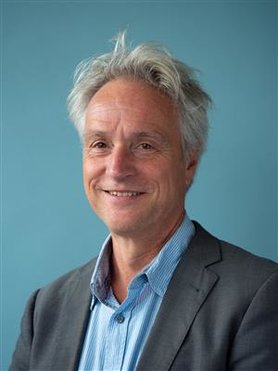

Prof.dr.ir. J.B. (Jules) van Lier
Prof.dr.ir. J.B. (Jules) van Lier
Expertise
Publications
-
2024
Faecal contamination on lettuce irrigated with different water sources in Maputo, Mozambique
C. A. Niquice-Janeiro / A. Marques Arsénio / G. Medema / J. B. van Lier
-
2024
Inhibitory effects of long chain fatty acids on anaerobic sludge treatment
Biomass adaptation and microbial community assessment
Maria A. Szabo-Corbacho / Pragnya Sharma / Diana Míguez / Victoria de la Sovera / Damir Brdjanovic / Claudia Etchebehere / Hector A. García / Jules B. van Lier -
2024
Limitations of a biokinetic model to predict the seasonal variations of nitrous oxide emissions from a full-scale wastewater treatment plant
Siddharth Seshan / Johann Poinapen / Marcel H. Zandvoort / Jules B. van Lier / Zoran Kapelan
-
2024
Recovery of sulfuric acid and ammonia from scrubber effluents using bipolar membrane electrodialysis
Effect of pH and temperature
Dhavissen Narayen / Eline van Berlo / Jules B. van Lier / Henri Spanjers -
2024
Role of the composition of humic substances formed during thermal hydrolysis process on struvite precipitation in reject water from anaerobic digestion
Javier Pavez-Jara / Widya P. Iswarani / Jules B. van Lier / Merle K. de Kreuk
-
Media
-
2024-03-05
Open Education Ambassador Awards for TU Delft lecturers
Appeared in: TU Delft
-
2019-07-04
‘Anaerobe techniek wordt een kernproces in de circulaire economie’
Appeared in: H2O Waternetwerk
-
2016-07-01
Over waterlust en overlast
Appeared in: TU Delft
-
2014-01-01
Studiepunten voor online-college: Een revolutie in het onderwijs
-
2013-01-01
Vrouwelijke hormonen in drinkwater
Prizes
-
2024
Open Education Ambassador Award 2024
Every year, in conjunction with Open Education Week, TU Delft celebrates nine individuals, one from each faculty and QuTech, who have gone above and beyond to embody the spirit of Open Education.
-
2016-10-13
PhD Energy Event 2016
Rewarded amongst best three posters during PhD Energy Event
Ancillary activities
-
2023-09-01 - 2024-08-30
Education
-
2023-09-01 - 2025-08-29
Education